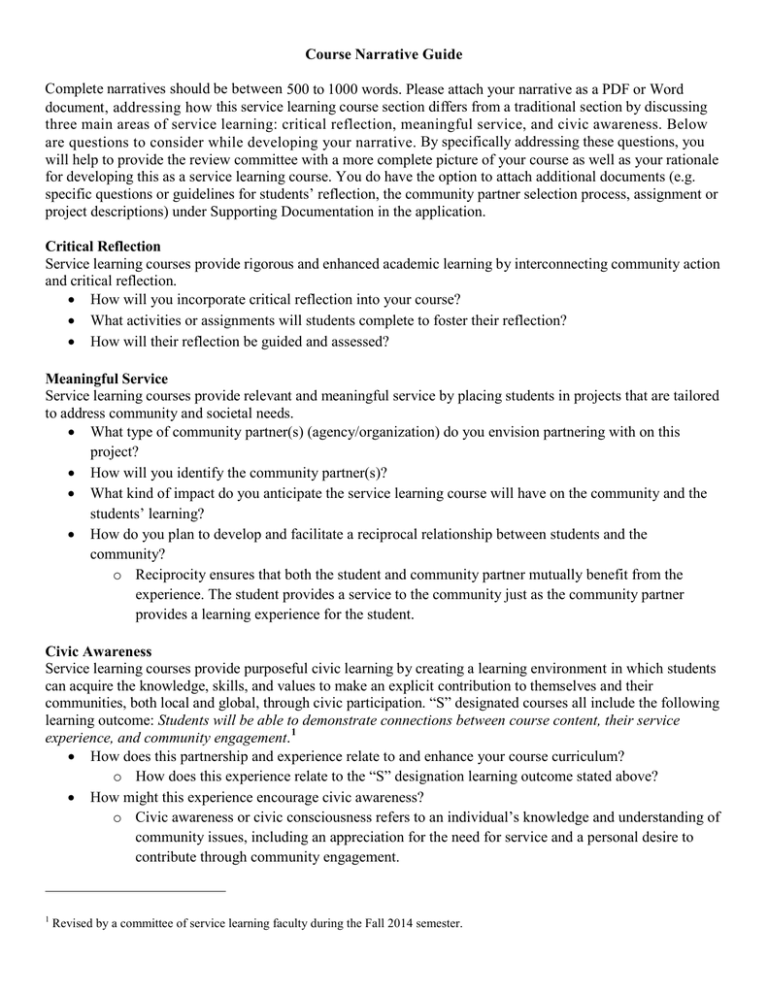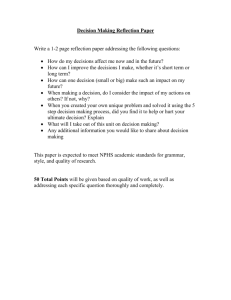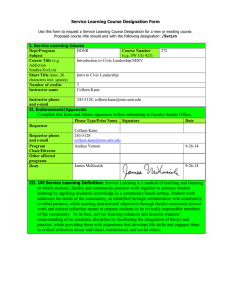Course Narrative Guide
advertisement

Course Narrative Guide Complete narratives should be between 500 to 1000 words. Please attach your narrative as a PDF or Word document, addressing how this service learning course section differs from a traditional section by discussing three main areas of service learning: critical reflection, meaningful service, and civic awareness. Below are questions to consider while developing your narrative. By specifically addressing these questions, you will help to provide the review committee with a more complete picture of your course as well as your rationale for developing this as a service learning course. You do have the option to attach additional documents (e.g. specific questions or guidelines for students’ reflection, the community partner selection process, assignment or project descriptions) under Supporting Documentation in the application. Critical Reflection Service learning courses provide rigorous and enhanced academic learning by interconnecting community action and critical reflection. • How will you incorporate critical reflection into your course? • What activities or assignments will students complete to foster their reflection? • How will their reflection be guided and assessed? Meaningful Service Service learning courses provide relevant and meaningful service by placing students in projects that are tailored to address community and societal needs. • What type of community partner(s) (agency/organization) do you envision partnering with on this project? • How will you identify the community partner(s)? • What kind of impact do you anticipate the service learning course will have on the community and the students’ learning? • How do you plan to develop and facilitate a reciprocal relationship between students and the community? o Reciprocity ensures that both the student and community partner mutually benefit from the experience. The student provides a service to the community just as the community partner provides a learning experience for the student. Civic Awareness Service learning courses provide purposeful civic learning by creating a learning environment in which students can acquire the knowledge, skills, and values to make an explicit contribution to themselves and their communities, both local and global, through civic participation. “S” designated courses all include the following learning outcome: Students will be able to demonstrate connections between course content, their service experience, and community engagement. 1 • How does this partnership and experience relate to and enhance your course curriculum? o How does this experience relate to the “S” designation learning outcome stated above? • How might this experience encourage civic awareness? o Civic awareness or civic consciousness refers to an individual’s knowledge and understanding of community issues, including an appreciation for the need for service and a personal desire to contribute through community engagement. 1 Revised by a committee of service learning faculty during the Fall 2014 semester.



